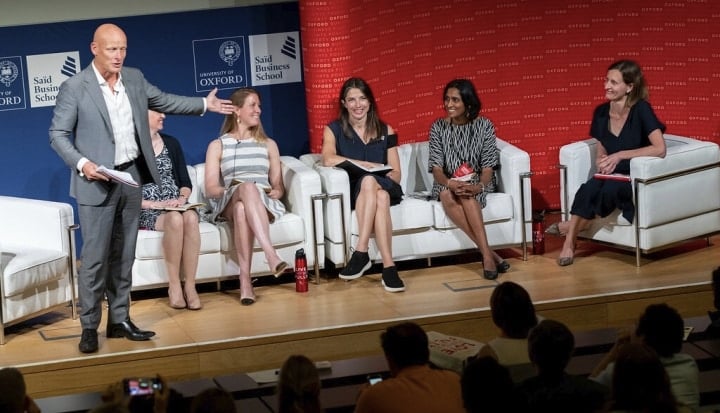The SDGs were launched, to great fanfare, as a blueprint for achieving a better and more sustainable future for everyone. As states signed up to the Global Goals in 2015 they pledged to leave no-one behind and prioritise the fast-tracking of action for those with furthest to go. Yet four years on, research shows that refugees are being left out and left behind as we strive to achieve Agenda 2030.
Distinguishing itself from other development frameworks, the SDG Agenda emphasises a role for all sectors in achievement of the Goals. Business involvement is critical and there is enormous potential for this sector to create real change for refugees. With UNHCR recently reporting historic figures for displacement – over 70 million people forcibly displaced last year and a global refugee population in excess of 25 million – the case for action has never been more urgent.
Across society, solutions are at hand. Three ways that business can secure progress towards the SDGs for refugees are:
1. By investing in job creation for refugees
By investing in job creation for refugees, businesses are not only able to provide refugees with livelihoods but also contribute to their economic and social inclusion. Many businesses already doing this. For example, with the support of the Citi Foundation, IRC is training young entrepreneurs in Jordan, Nigeria and Greece. There’s a strong economic case for refugee employment too. Our recent research shows that closing gender gaps in pay and employment for refugee women could contribute up to 1.4 trillion US dollars annually to global GDP. Meanwhile, a study by the Tent Partnership for Refugees and The Fiscal Policy Institute found that 73 percent of employers interviewed reported a higher retention rate for refugees than for employees overall.
2. By building strong, collaborative, multi-stakeholder partnerships to the benefit of refugees
Cross-sectoral collaboration has become a defining feature of sustainable development – its value lying in bringing together diverse resources and expertise to achieve greater impact. At the IRC we have experienced this first-hand by working with other organisations to establish the Business Refugee Action Network (BRAN). BRAN was founded as a shared initiative in 2018 by Ben & Jerry’s, Virgin, the Tent Partnership for Refugees, The B Team and the IRC. We’ve worked together to develop BRAN’s strategy and host workshops for businesses in London and Germany. BRAN supports businesses in innovations to support refugees and acts as a collective voice for business in speaking out in support of refugees.
3. By promoting refugee inclusion in the SDG Agenda
As was discussed in Oxford, cross-sectoral advocacy is an important tool in influencing governments’ policies in support of the Global Goals. Reflecting this, BRAN is calling for greater attention to be paid to refugee progress and inclusion in the SDG Agenda. In consultation with businesses we’ve developed BRAN’s SDG Refugee Business Statement. The Statement does three things:
- Outlines the great work already being done by businesses to support refugees.
- Calls on governments to make supporting refugees simpler for business. So one way of doing this would be to create a more enabling environment for refugee employment.
- Makes specific recommendations for government action on fulfilling the SDGs for refugees – such as measuring refugee progress towards the Global Goals.
The Statement is due to be launched in line with the SDG Leader’s Summit in September, a meeting that will set the tone for SDG progress in the coming years. In amplifying CEO and company support for refugees at this time, we can create meaningful change for this group together.
If your business would be interested in signing-on to the Statement, please contact us at Bu***************@re*******.org for further information.










